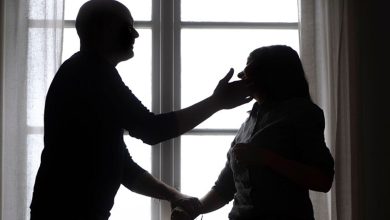Left behind by parties, carried by courage: Malawi’s women fight
As the sun sets over the red soils of Blantyre, a group of over 50 women sit in quiet determination.
Their notebooks are open, their eyes fixed forward not on a teacher, but a shared dream.

The women’s gathering in Blantyre was not just for training, but for battle against an entrenched political culture that continues to leave women behind.
With just months to go before Malawi’s September 16 General Election, NGO Gender Coordination Network (GCN) has sounded the alarm.
the number of women participating in the electoral race is not just low, it’s alarming.
Out of 541 women who initially expressed interest in running, only 471 paid and collect their nomination papers.
Just one woman stands among 15 presidential candidates.
But this is not just a story about numbers. It is a story of resistance, resilience and women who, when locked out by political parties, decided to carve their own path as independents.
“Political parties are our biggest hurdle,” says Maggie Kathewera Banda, GCN chairperson.
“Even the most capable women are denied support, resources, or even acknowledgment.”
At face value, the Malawi Electoral Commission’s decision to reduce nomination fees for female candidates from K2.5 million for men to K1.25 million for women seems progressive.
But beneath it lies the brutal truth: without party backing, even the reduced fee is a mountain too steep for many.
“The moment you’re a woman and wants to contest, you’re met with silence or ridicule within your own party,” Banda explains. “So, they go independent, not by choice, but because the party doors are shut.”
Independent candidacy comes at a heavy cost. Women must fund their own campaigns, mobilise communities on their own and build electorates’ trust.
“It’s lonely,” says 40-year-old Dorothy Kambali, shadow independent councillor for Mkolokoti-Chikapa Ward, in Blantyre.
She chose independence after her party favoured a male newcomer.
“But if we wait for them to give us a seat, we’ll wait forever,” she said.
Despite this, the mood among the women was anything, but defeated.
The GCN training is equipping them with campaign strategies, vote protection skills,and knowledge to combat gender-based violence during the electoral process.
It’s a crash course in survival, but also a roadmap to power.
Elections analyst Augustine Magolowondo believes the rise of independent women candidates reveals something deeper: “This is a quiet revolution. These women are saying, ‘We’re done begging.’”
He adds that while independence shows their bravery, long-term change depends on political parties being held accountable.
“If parties remain boy’s clubs, our democracy is only half built,” he says.
To that end, Banda calls for immediate reforms: laws mandating gender quotas, school curriculums that normalise women in leadership and strict enforcement of inclusion policies.
“We can’t wait for favours anymore,” she says. “We need frameworks that force this country to recognise its women not as supporters, but as leaders.”
As the campaign season is launched tomorrow, what emerges is not just frustration but fire. Women like Dorothy are not contesting simply to win they are contesting to be seen, to be counted, and to change the narrative for the next generation of girls.
In a country where half the population is female, the ballot must reflect more than just male ambition. It must reflect the courage of every woman who dared to say, “Me too. I can lead.”
For many of these women, the journey to the ballot is not just political it’s deeply personal.
It’s about rewriting the story of marginalisation they’ve lived through in their families, workplaces, and communities.
“I want my daughter to grow up in a Malawi where leadership is not a man’s birthright,” says Annie Benson a first-time member of Parliament aspirant from Phalombe .
Her voice trembles, not from fear, but from the weight of what’s at stake. “Even if I don’t win, I want to show her and every girl in my village that it’s possible to rise.”
In rising alone, those women are not just chasing votes they’re lighting torches for those still afraid to step into the dark.





